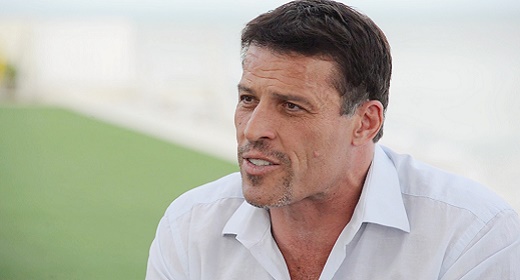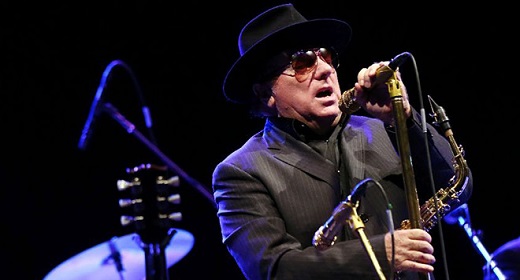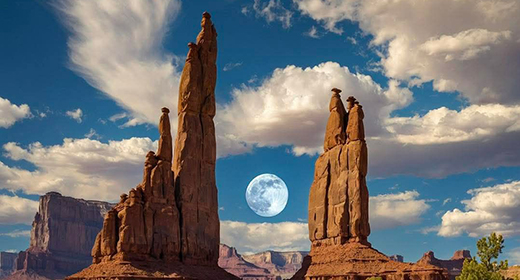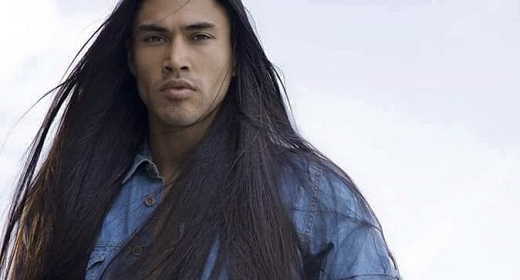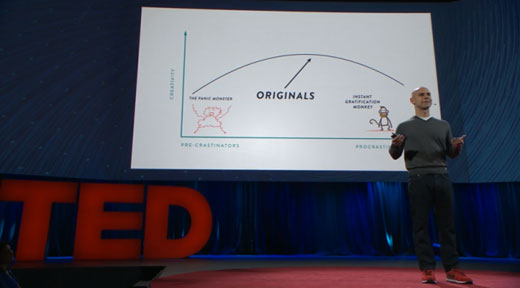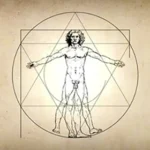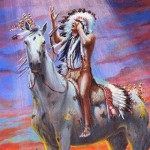by Kevin DiCamillo: There are these musical artists who have done some religious music or who have moved from gospel to mainstream…
or who have dabbled in it, but there is someone else who is not known for being religious who really is—and we should recognize that. And no, I’m not here kowtowing to the latest Nobel Laureate in “literature,” Bob Dylan, but to the man who plays Buster Keaton to Dylan’s Charlie Chaplin, George Ivan Morrison, more commonly known as Van Morrison.
True, while now-Nobel-laureate Bob Dylan’s Saved album (1980), formed the second-part of a trilogy of “born-again” Christian-music, he later converted back to Judaism (sort of). And then did a series of Victoria’s Secret ads, and wrote a movie where he played a Bob Dylan impersonator (Masked and Anonymous).
Indeed, you can see a video of Van Morrison and Bob Dylan together singing, in Morrison’s words, “a song about redemption through suffering” called “Foreign Window” (from Morrison’s 1986 No Guru, No Method, No Teacher) at the Acropolis here:
Other pop/gospel crossovers include Elvis, of course, who even today can be seen on late-night TV with sales of his “Christian Recordings.” And in the beginning, as it were, there was the late, great Sam Cooke, who started as the lead singer of a Gospel-group called The Soul Stirrers, and subsequently went on to be the first African-American to truly and fully crossover from Gospel to Pop music—and write, produce and own his lyrics and music. Not for nothing does Van Morrison cover so many of Sam Cooke’s songs.
Still, for the most part there are so many examples of pop and rock music insulting Christianity in particular and spirituality in general that it seems pointless to even give a representative sampling. This is, of course, nothing new. If anything, it is only offensive for the sake of being offensive that it seems not worth mentioning at all.
However, under the radar of Madonna, and what seems like an endless parade of “musicians” who have portrayed themselves literally on a crucifix, still flies one of the few, true musical geniuses of the pop-rock genre who is, if not unapologetically Catholic, is at least unabashedly Christian: Van Morrison.
What is particularly incredible about Van Morrison’s music and lyrics (which since the 1960s he has not only written, but produced himself—indeed, so intent is he on total and complete artistic control that some of his albums read “written, produced, and directed by Van Morrison”) is how obvious his spiritual quest is and has been. In 1989, the year he had a smash hit with “Have I Told You Lately?,” he also released a minor UK hit “Whenever God Shines His Light On Me” (a duet with Cliff Richard), and from the same album, Avalon Sunset, “When Will I Ever Learn to Live in God?” Further, the same album contains “Daring Night,” a song that refers over and over again to “The Lord of the Dance,” a famous post-Vatican II go-to number.
As if that weren’t proof-positive of Mr. Morrison’s affinity for the Christian desire for God, here are lyrics from his 1986 song—which he very often plays in an extended version in concert—“In The Garden”:
No guru, No method, No teacher:
Just you and I and nature
And the Father and The Son and The Holy Ghost
In the Garden all misty wet with rain.
Not content with his own musings on the divine, Morrison included the classic protestant hymns “Just A Closer Walk With Thee” and “Be Thou My Vision” on the 1991 double album, Hymns To The Silence, considered by many to be his greatest album in a career that began with Irish skiffle sessions in 1965 and continues to this very day.
Nor was this a phase of the late 1980s-early 1990s: as early as 1970 Van Morrison’s song “If I Ever Needed Someone”—whose first line (and refrain) is “Lord, if I ever needed someone / I need You”—appeared on His Band And The Street Choir album and he reprised it just last year on his 2015 Reworking The Songbook: Duets album with gospel-great Mavis Staples. And as if to absolutely make the point clear: the following year’s album was entitled Saint Dominic’s Preview, whose cover shows Morrison on the steps of San Francisco’s famous, gorgeous Dominican church.
How did this unapologetic apologist for Christianity go unnoticed for so long? For one thing, Van Morrison’s background was at best peculiar: he was born and raised a Jehovah’s Witness in staunchly-protestant Belfast (he recounts this in the 1978 song “Kingdom Hall” on Wavelength). In another strange twist, by 1984 Morrison credited The Church of Scientology and Dianetics founder L. Ronald Hubbard on Inarticulate Speech of The Heart—an album where he praises Anglican churchman (and former Catholic) John Donne in “Rave On, John Donne.” Donne’s poems are so orthodox that they make the poetry appendix in The Roman Catholic Liturgy of the Hours.
Further, unlike so many singer-songwriters who never stop talking, mainly about themselves, Van Morrison rarely speaks at length about anything—except music. On average he astounding produces—literally—a new album nearly every other year, and often makes remarks (when he remarks at all) that he’s “just a songwriter.” Since 1990 his garb has been that of a jazz musician: black jacket, black fedora, and the requisite sunglasses. He shuns popularity and the popular press as much as other musicians and musical celebrities crave it.
Also, you never know which Van Morrison is going to show up at a concert: I’ve been to shows where he has played with his back turned to the audience, or even from backstage. It’s said he suffers from extreme stage-fright. Still, that’s being a bit disingenuous.
However, Van Morrison’s “spiritual quest” and its unblinkered Christian leanings differ from all of the above—from Dylan to Elvis to Sam Cooke—in that they have alwaysbeen there—he’s never not been a spiritual singer-songwriter, even if he doesn’t wear his spirituality on his sleeve or dripping off every single song.
Can you imagine any other pop-singer-songwriter singing, earnestly: “When I think of that rugged Cross / on which the dear Savior gave his all/ When I feel like I’m on my last go round / See me through” (from Enlightenment, “See Me Through”).
Plenty of books on Van Morrison and his lyrics have been written, almost always taking their title from one of his songs, but like all tomes on pop/rock music, I find them not only wanting but heavy-handed: they leave me wanting to put down the book and just listen to the music of the people they purport to explicate.
One could list dozens (and dozens) of Morrison songs about Christianity and spirituality, which, too, would be boring. What I find amazing, however, is that a major figure in pop music—at least as far as always packing in huge crowds over the course of almost two generations, and being acknowledged by lesser but better-known acts such as U2 and Bruce Springsteen and Rod Stewart, and who is himself a member of the dubious “Rock n’ Roll Hall of Fame”—can sing such lyrics as: “Send me / Your Bible” (“Vanlose Stairway,” 1982), “T.S. Eliot joined the ministry” (“Summertime in England,” 1980), “In the Upper Room / Down by Avalon” (“Avalon of the Heart,” 1990), “Contacting my angel / She’s the one that I adore” (“Contacting My Angel,” 1989) and in a scathing indictment of mid-1990s Western Society, “There’s no mystery / And there’s nothing hidden / And there’s no religion here today” (“No Religion,” 1995)—and still sell hundreds of thousands of CDs and iTunes downloads.
Or could it possibly be because of his forthrightness about religion and Christian spirituality that Van Morrison is popular?
Which brings me back to the opening epigraph about “Christian Rock”: no one would ever classify Van Morrison as “Christian Rock” mainly because that term is almost derogatory, at least in the popular media. And I can see why: so much of that genre is so overly-determined and overly-produced that it leaves little more than a façade, though with good intentions behind it. I’m glad, of course, Christian Rock exists and is so popular. However, it is simply not music I enjoy. And I’m sure there are plenty of people who don’t enjoy Mr. Morrison. But chances are you’ve heard and like at least a few of his many songs.
A contrarian might say, “But many—even most—of Van Morrison’s biggest hits have nothing to do with God or even spirituality: ‘Brown-Eyed Girl,’ ‘Moondance,’ ‘Real Real Gone,’ ‘Blue Money,’ ‘Domino’—where is God in these songs?” I can’t argue for every single song, of course: Morrison has written far too many to keep up with over the past half-century. But I will say this: “Domino”—Morrison’s all-time biggest hit in a list as long as his career—a song more popular than all others mentioned here as well as classics such as “Here Comes The Night,” “Gloria,” “Caravan,” “Warm Love,” and “Into The Mystic”—is, in Latin, the singular dative and ablative form of “Lord” (“Domino”)—and would explain why the song contains the refrain “Lord, Have Mercy.”





